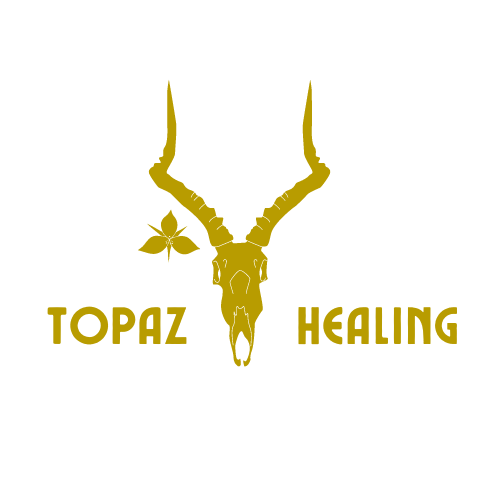My Bone to Pick with the DSM-5
I remember being an undergrad getting my bachelors in social work when the 5th copy of the Diagnostic and Statistical Manual (DSM 5) was published. I purchased my copy and I studied the hell out of it. I was fascinated by the possible human experiences captured in this book and I felt an enormous pressure to learn all I could (after all, diagnosing other people was going to be a big responsibility).
This data for this book was first produced by US Census in 1840 as they collected information about people’s “idiocy and insanity” status. The roots of this book are founded on creating a set of criteria and understanding how many people have mental health experiences and how frequently they are occurring (particularly in an asylum or institutional setting). The book grew to address more diverse types of issues when the military wanted to classify outpatient presentations among World War II soldiers and veterans. The DSM grew over time, largely reflecting the social norms of western culture and refining itself to become one of the most informative tools in the mental health profession.
Today, it's used as a tool by licensed (masters and doctoral level) mental health professionals to diagnose mental health disorders. In this book, you will find hundreds of pages detailing and setting the criteria for what constitutes a disordered human experience vs. a non-disordered human experience. This book is written in collaboration with mental health scholars, doctors and folks generally invested in influencing the way we understand/diagnose mental health disorders.
While there can be value in having a name to describe our internal experience, allowing us to be in connection with others who have similarities - it’s important to remain critical of this book considering the patriarchal and white-washed nature of the mental health profession.
To demonstrate some of my critiques, I’d like to highlight the newest diagnosis added to the DSM called Prolonged Grief Disorder.
The American Psychological Association (APA) which oversees the publishing of the DSM was inspired to name Prolonged Grief Disorder after noticing the likely impact of natural disasters, gun violence, pandemics, mass death and the ongoing war in Afghanistan has on people (people living in the global west in particular).
The diagnostic criteria to be given this disorder includes the following symptoms:
Identity disruption (e.g., feeling as though part of oneself has died).
A marked sense of disbelief about the death.
Avoidance of reminders that the person is dead.
Intense emotional pain (e.g., anger, bitterness, sorrow) related to the death.
Difficulty with reintegration (e.g., problems engaging with friends, pursuing interests, planning for the future).
Emotional numbness.
Feeling that life is meaningless.
Intense loneliness (i.e., feeling alone or detached from others).
In the DSM - they go on to further clarify the diagnosis by naming that this disorder may present when someone close to the bereaved person has died within at least 6 months for children and adolescents, or within at least 12 months for adults.
In prolonged grief disorder, the bereaved individual may experience intense longings for the deceased or preoccupation with thoughts of the deceased, or in children and adolescents, with the circumstances around the death. These grief reactions occur most of the day, nearly every day for at least a month. The individual experiences clinically significant distress or impairment in social, occupational, or other important areas of functioning.
Per the APA - the duration of the person’s bereavement becomes disordered when it exceeds expected social, cultural, or religious norms and the symptoms are not better explained by another mental disorder. Additionally, this human experience is considered significantly disordered if it causes you to change your level of function in multiple areas of your life (such as school, work, or home).
At this point, you might be open to asking yourself what you consider to be socially, culturally, and religiously ‘normal’ under late-stage capitalism.
For me, I notice that profit over people is a common norm in our society. I also see rampant signs that narcissism and greed are not only seen as culturally normal in the age of multi-billionaires - it is largely the bar at which we set the American Dream.
Here we are in 2022––investing in the recycling of a census question from 1840 and pathologizing the need for more than 12 months to heal from trauma and grief. I can’t help but imagine a world in which the money used to publish this book was used towards providing people with the time off from work and school to rest as their nervous systems learn how to live in a world without the people they love. I fantasize about the time/energy/talent being relocated towards creating community care structures that would hold us when we are in the depth of our most painful losses.
We have never lived in a world where we had so much destruction in so many areas of our lived experience. We have never lived in a world where our access to hearing about this destruction is 24/7. Yet, this team of professionals established what marks a lived experience as disordered solely on what is socially considered normal
This society has never been in this experience, there is nothing normal about what is going on here.
As a therapist who helps themselves and others work through grief and trauma regularly, pathologizing people's adaptations to systemic trauma rather than treating or changing the systems that cause them feels like a slap in the face.
The only time I will use the DSM is if a client is requesting a formal diagnosis - either for education so that they may access services or care (i.e. reimbursement from their insurance company), or if they are looking to find a community to relate with and feel that a label for their experience is helpful.
In March of 2022, The DSM-5 was revised by the American Psychiatric Association for the first time since 2014. While the reason expressed for this update was to add more "inclusive language," I can't help but understand the rebranding of deeply stigmatized words for mental health experiences as an essentially liberal and capitalist technique.
The DSM serves as a gatekeeper of access to care, and in my opinion, a diagnosis requirement to receive care will always be unethical.
If you’re in a clinical or educational program that offers a course in differential diagnosis, this is your opportunity to skip it and take a course that focuses on systems theory.
It’s much more relevant.




